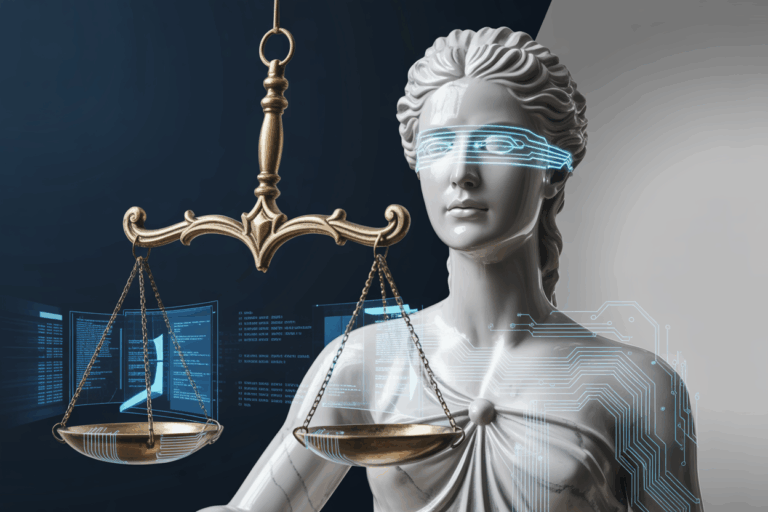Legal AI Specialists Are the Missing Link Between Your Firm’s AI Tools and Bar Compliance
As generative AI transitions from experimental technology to essential infrastructure in law firms and legal departments, a critical question emerges: who translates ambitious AI capabilities into compliant, defensible legal workflows?
The answer isn’t found in Silicon Valley’s “prompt engineer” roles, the $300,000-plus jobs Bloomberg reported tech companies posting to optimize language model outputs. Legal organizations need professionals who understand that implementing AI in law requires more than clever prompts. It demands expertise in retrieval architectures, evaluation frameworks, privilege protection, audit trails, and disclosure protocols capable of withstanding ethics opinions and judicial scrutiny.
This explains why law firms rarely use the “prompt engineer” title. Instead, they’re hiring legal technologists, AI applications specialists, knowledge engineers, and legal operations professionals who combine deep legal domain expertise with technical AI capabilities. The American Bar Association’s Formal Opinion 512, issued in July 2024, establishes that lawyers using AI must maintain competence, protect confidentiality, communicate transparently with clients, and charge reasonable fees, obligations that require specialized roles to fulfill.
The Pressure Points Driving This Role’s Emergence
Multiple forces are converging to make legal AI implementation specialists essential to modern practice. Client demands for efficiency and cost control are intensifying, while courts and bar associations have established verification and disclosure expectations that require careful navigation.
U.S. District Judge Brantley Starr of the Northern District of Texas issued a standing order in mid-2023 directing attorneys to certify either that no generative AI was used in preparing filings or that any AI-generated content was thoroughly verified by a human. As Bloomberg Law reported in April 2025, dozens of federal judges have issued standing orders regulating AI use in their courtrooms, creating a patchwork of requirements that legal AI specialists must navigate.
The technology itself presents unique challenges. Stanford researchers studying purpose-built legal AI tools with retrieval-augmented generation found that specialized systems still hallucinate in approximately one out of six queries, with some tools performing worse. These reliability issues underscore why human oversight and verification remain non-negotiable.
What Legal AI Specialists Actually Do
The role extends far beyond writing effective prompts. These professionals architect complete systems that balance capability with compliance.
Workflow Design and Implementation. Legal AI specialists transform intake, research, drafting, and review processes into versioned prompt templates with specified retrieval sources, evaluation datasets, and comprehensive logging. The Vals Legal AI Report, published in February 2025 as the first systematic independent benchmark of legal AI tools, found that Harvey Assistant achieved 94.8% accuracy on document Q&A tasks, demonstrating that properly implemented systems can deliver substantial performance gains but only when carefully designed and validated.
Research from Harvard Law School’s Center on the Legal Profession found that law firms report AI-powered complaint response systems have reduced associate time from 16 hours down to 3-4 minutes for high-volume litigation matters. These dramatic efficiency gains require meticulous workflow design that accounts for edge cases, maintains quality standards, and ensures human oversight at critical junctures.
Risk Management and Ethics Integration. ABA Formal Opinion 512 addresses multiple ethical dimensions: competence under Model Rule 1.1, confidentiality under Model Rule 1.6, communication with clients under Model Rule 1.4, fees under Model Rule 1.5, candor toward tribunals under Model Rule 3.3, and supervisory responsibilities under Model Rules 5.1 and 5.3. Legal AI specialists operationalize these requirements by embedding confidentiality controls, privilege protections, disclosure language, and human-in-the-loop checkpoints throughout AI-powered workflows.
The opinion discusses fee reasonableness in the AI context, noting that market forces and the prohibition on unreasonable fees may influence lawyers to adopt efficient methods. Legal AI specialists help firms navigate billing considerations, ensuring transparent client communication about AI use and appropriate time allocation between automated drafting and human review.
Tool Selection and Performance Evaluation. In the Vals benchmarking study, Harvey led multiple tasks (including Document Q&A at 94.8%), while CoCounsel from Thomson Reuters scored highest in document summarization with 77.2%. Lawyer baselines topped some tasks such as Redlining and EDGAR Research. Legal AI specialists must evaluate platforms across multiple dimensions: security architecture, accuracy benchmarks, integration capabilities, vendor track records, and total cost of ownership including verification time.
A survey reported by Artificial Lawyer in June 2025 found that major law firms have adopted multiple AI solutions, yet actual adoption rates among individual attorneys remain modest. This implementation gap often stems from insufficient evaluation, inadequate training, or tools that don’t align with actual legal workflows, problems that skilled AI specialists are positioned to solve.
Data Governance and Audit Trails. Ensuring client data never trains external models, establishing prompt libraries, implementing access controls, and maintaining audit trails for defensibility all fall within the legal AI specialist’s domain. Fortune reported in June 2025 that Harvey, a leading legal AI platform, emphasizes security with regular third-party testing and industry-recognized security standards. Firms implementing AI must match this rigor in protecting client information.
Legal AI specialists working in multi-jurisdictional firms face a complex regulatory environment. While ABA Formal Opinion 512 provides the national framework, state bar requirements vary significantly, including Texas Opinion 705 issued in February 2025, NYC Bar Formal Opinion 2024-5, Florida Opinion 24-1, and California’s Practical Guidance from November 2023. Specialists must build systems flexible enough to accommodate the most restrictive applicable standard across jurisdictions.
International frameworks add another layer of complexity. The EU AI Act entered into force on August 1, 2024, establishing risk-based regulation with phased implementation through 2027. Legal AI specialists at global firms must understand how these requirements intersect with GDPR and other data protection regulations.
The Solicitors Regulation Authority in the United Kingdom has issued research and guidance emphasizing confidentiality and privilege protection when deploying AI, while UK courts have warned of consequences for fictitious citations, including regulatory referrals. In Australia, regulators in New South Wales, Victoria, and Western Australia issued a joint statement on responsible AI in legal practice in December 2024, and Australian courts have sanctioned lawyers for submitting AI-generated documents containing fabricated case citations.
The Current AI Tool Landscape
Legal AI adoption is accelerating across practice areas, with litigation, personal injury, and family law firms leading implementation. The tools they’re adopting fall into several categories.
Specialized legal research platforms like Harvey AI and Thomson Reuters CoCounsel offer legal-tuned models with built-in workflow features. CNBC reported in August 2025 that Harvey reached $100 million in annual recurring revenue three years after launch, with over 500 customers including major law firms and corporations. Some organizations develop firm-built proprietary solutions for greater control and customization, tailored to their specific practice areas and client needs, like Troutman Pepper’s Athena platform.
Firms also use general-purpose foundation models from OpenAI, Anthropic, and others combined with retrieval-augmented generation and custom prompts, though this approach requires the most sophisticated system design including retrieval infrastructure, evaluation frameworks, and governance protocols.
Who’s Already Doing This Work?
Legal operations specialists, eDiscovery analysts, and legal technologists, individuals with hybrid skill sets combining legal knowledge and technical expertise, are among the emerging roles. Robert Half’s May 2025 research on AI and legal tech integration found that legal operations specialists optimize legal processes and support technology implementation, while eDiscovery analysts leverage AI tools to streamline the discovery process. While “prompt engineer” remains standard in tech companies, law firms and corporate legal departments prefer titles emphasizing legal domain expertise alongside technical capabilities.
Among legal hiring managers, Robert Half reported in June 2025 that a majority plan to increase hiring for new projects and company growth, with legal technology integration cited as a top strategic priority for 2025. The demand for professionals who can bridge legal practice and AI implementation has never been stronger.
Grand View Research projects the legal AI market will grow from $1.45 billion in 2024 to $3.90 billion by 2030, representing a compound annual growth rate of 17.3%. This expansion will continue creating opportunities for legal AI specialists across law firms, corporate legal departments, and legal technology vendors.
Essential Skills for Legal AI Specialists
Organizations building or expanding AI capabilities should seek candidates with legal domain fluency and technical competence, specifically understanding of retrieval-augmented generation, embeddings, evaluation methodologies, and when RAG differs from fine-tuning, along with knowledge of legal research methodologies, document review workflows, and practice-specific requirements.
Prompt engineering and testing abilities matter, including authoring sophisticated prompt templates, specifying retrieval sources, building test sets reflecting real-world complexity, and conducting iterative refinement with A/B testing frameworks. Candidates need a governance and compliance mindset, with experience in version control, audit logging, privilege protection, and disclosure protocols, plus understanding of data processing agreements, business associate agreements, and international data transfer mechanisms.
Change management capabilities are essential, including skills in creating training materials, quick-start guides, and standard operating procedures for attorneys, along with ability to translate technical concepts into accessible language for non-technical stakeholders. The best candidates demonstrate measurable outcomes through portfolios showing reduced draft time, higher first-pass accuracy, fewer revision cycles, improved client satisfaction scores, or documented cost savings with before/after metrics.
Cross-jurisdictional awareness of ABA guidance, key state bar opinions, and international frameworks like UK SRA guidance, EU AI Act fundamentals, and Australian regulator statements helps firms with multi-jurisdiction practices. Vendor evaluation expertise, including ability to assess AI platforms on security, accuracy benchmarks, explainability, integration options, and contract terms regarding data use and privilege protection, rounds out the skill set.
What to Watch
Several developments will shape the legal AI specialist role. States continue issuing guidance on AI use, with the Illinois Supreme Court in December 2024 taking a measured stance by encouraging responsible use while recommending against mandatory AI disclosure requirements, relying instead on existing ethical rules. Watch for convergence around disclosure requirements and verification standards as more courts and bar associations address the technology.
A 2025 benchmarking survey published by LawNext in June found that corporate legal departments are actively exploring and implementing AI tools, particularly for contract-related tasks. As adoption matures, best practices and standardized approaches will emerge from these enterprise adoption patterns.
The Vals Legal AI Report represents the first systematic independent benchmark, with more such evaluations expected to help firms cut through vendor marketing claims and make informed procurement decisions. Industry reports highlight growing focus on AI systems that can plan and execute multi-step legal tasks autonomously, though marketing often outpaces actual capabilities. Legal AI specialists will need to evaluate these agentic AI developments critically while maintaining robust human oversight.
Law school clinics and labs are developing practical evaluation methods for legal AI, providing frameworks that practitioners can adapt for their own implementations. The Harvard Law Library Innovation Lab published research in February 2025 on lessons learned from building chatbots for law professors using custom GPT, offering practical insights into legal AI development.
The Path Forward
Legal AI specialists represent the critical missing link between powerful AI capabilities and compliant, defensible legal practice. As ABA Formal Opinion 512 concluded, lawyers may ethically utilize generative AI, but only to the extent they can reasonably guarantee compliance with ethical obligations including confidentiality, avoidance of frivolous claims, candor to tribunals, truthfulness, reasonable fees, and advertising restrictions.
Meeting these obligations at scale, across multiple jurisdictions, practice areas, and use cases, requires dedicated professionals who understand both the promise and perils of AI in legal contexts. Organizations that invest in these roles position themselves to capture AI’s efficiency gains while managing its risks, ultimately delivering better service to clients and maintaining the trust that underlies the legal profession.
My Take
We’re at the point where AI in law stops being a novelty and starts becoming infrastructure. The conversation is shifting from “what can it do?” to “how do we use it responsibly and defensibly?” The technology itself isn’t the hard part anymore. The hard part is aligning it with ethics, client expectations, and professional standards. That’s where legal AI specialists come in.
Most lawyers will never spend hours testing models or tuning prompts, and that’s fine. A lawyer’s jobs is advocacy, not engineering. But someone inside the firm has to bridge that gap between what the AI can do and what the law allows. This isn’t about playing with new tools; it’s about building governance around them. It’s about making sure every AI-assisted output can be explained, verified, and defended if questioned by a judge or regulator.
The larger and more diversified the firm, the more complex this becomes. Each practice area interacts differently with confidentiality, privilege, and client communication rules. AI deployment in a multinational firm with litigation, transactional, and regulatory teams requires specialized oversight that no single partner can realistically manage. That is why legal AI specialists are becoming indispensable; they make it possible to scale compliance across dozens of practice groups without chaos.
By contrast, smaller firms working within a single practice area often have simpler needs. An out-of-the-box AI solution that integrates with their case management system, combined with strong customer support and a few consulting sessions, may be all that’s required. The stakes are still high, but the path to adoption is more direct.
I believe firms that invest in this now will have an enormous advantage. They’ll move faster, deploy smarter, and avoid the headline-making AI blunders that will inevitably happen to those treating these systems like toys. The firms that wait, hoping vendors will handle compliance for them, may find themselves learning the hard way that accountability can’t be outsourced.
If your firm is serious about AI, make someone responsible for it. Give them authority, time, access to firm leadership and budget. The technology is powerful, but in law, power without accountability has never ended well.
Further Reading: Implementing AI in Law: A Practical Framework for Compliance, Governance, and Risk Management
Sources
Above the Law | American Bar Association | Artificial Lawyer | Bloomberg Law | California State Bar | CNBC | European Commission | Florida Bar | Fortune | Grand View Research | Guardian | Harvard Law Library Innovation Lab | Harvard Law School Center on the Legal Profession | Illinois Supreme Court | Justia | LawNext | Legal Services Board (Australia) | New York City Bar | Robert Half | Ropes & Gray | Solicitors Regulation Authority (UK) | Stanford HAI | Texas State Bar | Texas Access to Justice Foundation | Troutman Pepper | UK High Court | UNC Law Library | Vals AI
Disclosure: This article was prepared for educational and informational purposes only. It does not constitute legal advice and should not be relied upon as such. All cases, sanctions, and sources cited are publicly available through court filings and reputable media outlets. Readers should consult professional counsel for specific legal or compliance questions related to AI use.







